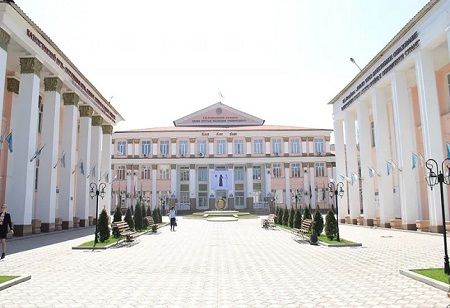Kazakhstan’s Minister of Science and Education, Sayasat Nurbek, is actively expanding international collaborations to offer new educational opportunities for Kazakh youth and stimulate economic growth. In under two years, Kazakhstan has successfully attracted more than 20 esteemed universities to set up branch campuses. Following the strengthening of ties with European universities, Kazakhstan now aims to establish new research institutes in the near future.
Nurbek believes that Kazakhstan has the potential to become an academic hub for the region due to its high quality of education. He remarked, “We are actively promoting this vast market to all our partners, including European partners who hold a special place among our priorities”. “There are two billion people living in the greater Eurasian region, one of the fastest-growing regions in the world”, said Nurbek, “More than half of these people are young individuals with immense talent but very limited access to quality education. That is a significant challenge”.
Leading Kazakhstan's educational initiatives is the "Bolashak" scholarship program, which has granted scholarships to over 12,000 students, allowing them to study at some of the world's top universities. Since its inception in 1993, the program has played a crucial role in sending Kazakhstan's most talented students abroad, mainly to European countries.
“The country is setting ambitious goals for restructuring the economy, modernization of the political system, and building a truly fair and inclusive society. Investments in education and the creation of ample opportunities for self-realization of citizens are of particular importance", remarked the President of Kazakhstan, Kassym-Jomart Tokayev, in a recent speech.
Minister Nurbek told Euractiv, “Germany, the Czech Republic, and France are among the favored destinations for our Bolashak scholars.” He highlighted that Germany tops the list with 437 graduates, followed by the Czech Republic with 261 and France with 189. These students specialize in a variety of fields, with humanities accounting for 48.7%, technical fields for 40.3%, medical studies for 8.1%, and creative disciplines for 2.9%.
During the visit of President Frank-Walter Steinmeier of the Federal Republic of Germany last year, several agreements were signed. A notable milestone among these is the establishment of the Kazakh-German Institute of Sustainable Engineering (KINI) at the Caspian Yessenov University of Technology and Engineering in Aktau, Kazakhstan. This initiative features partnerships between German universities and the local university in Aktau.
KINI will train technical specialists in top engineering practices to support the region's large energy projects, including green hydrogen production. The first cohort of students began their studies last year. The educational program follows a structured 2+1+1 model: students spend their first two years in Aktau, then a year of intensive study in Germany. In the fourth year, these students will be directly employed by the German-Swedish company Svevind, participating actively in operations.
Svevind is constructing a state-of-the-art plant to produce two million tons of green hydrogen, with a total project cost estimated at €50 billion, underscoring the initiative's scale and significance. The plant will have the capacity to generate 40 GW of green electricity, which will be exported to Asian and European markets. In addition to its environmental benefits, the Svevind project promises a significant economic impact, creating approximately 3,500 jobs during the construction phase. Minister Nurbek also signed an agreement with Anhalt University of Applied Sciences in Germany to collaborate in telecommunications and engineering.

